Ertach Kernow - Celebrating the official recognition of Cornish Identity
Cornish identity is the theme that marked an auspicious day for Cornish people as on 24th April 2024 they commemorated the tenth anniversary of the recognition of the Cornish as a national minority under the Council of Europe’s Framework Convention for the Protection of National Minorities. Ten years previously in 2014 Liberal Democrat Danny Alexander, Chief Secretary to the Treasury in the Westminster coalition government made an announcement affecting Cornish people. ‘Cornish people have a proud history and a distinct identity. I am delighted that we have been able to officially recognise this and afford the Cornish people the same status as other minorities in the UK.’ Cornish identity is stronger now than any time in perhaps over three hundred years having its beginnings in the Celtic Revival of the late 19th early 20th centuries.
From early times Cornwall and Cornish identity was recognised as a kingdom with rulers, some recorded in the Welsh Annals also known by their Latin name Annales Cambriae. Perhaps best known is Dungarth whose ancient memorial stone can be found near St Cleer, known as King Donierts Stone. Military defeats of the Britons by King Ecgberht of Wessex finally saw in 838 the larger kingdom of Dumnonia, of which current day Cornwall was a part, come largely under west Saxon control, albeit ruled autonomously by its petty kings. In 936 King Æthelstan of England expelled the Cornish from Exeter setting the border of Cornwall at the eastern bank of the River Tamar, unwittingly perhaps creating a legacy carried through the centuries supporting a base for today’s Cornish identity.
As always click the images for larger view
Through to Tudor times and increased centralisation of power under the monarch Cornwall had been recognised as a separate nation with many records from those earlier times indicating that. In 1485 King Henry VII commissioned Italian cleric Polydore Vergil to write a history of England. Vergil wrote ‘The whole country of Britain is divided into four parts, whereof the one is inhabited by Englishmen, the other of Scots, the third of Welshmen, the fourth of Cornish people.’ Henry VIII openly acknowledged Cornwall’s nationhood at his coronation parade, with nine children riding horses each representing one of Henry’s kingdoms including England, Wales, Ireland and Cornwall. Following defeats of the Cornish rebellions and lack of a Kernewek bible, from the Tudor period Cornish national distinctiveness together with its language faded along with the powers of the Cornish Stannary Parliament.
Cornwall was increasingly being referred to as a ‘county’ although nothing legally had been done to change the status of Cornwall unlike Wales and Scotland. It was the UK Local Government Act 1888 which established Cornwall as an administrative county fixing, in most people’s minds especially the English but far fewer Cornish folk, Cornwall’s status as part of England. Today we have a unitary authority governing Cornwall with certain devolved roles covering virtually the same historic lands set by Æthelstan in 936. The battle for recognition as a separate nation continues supported by the resurgence of the Cornish language and maintenance of our cultural distinctive heritage. During the late Queen Elizabeth’s Golden Jubilee in 2012 a river pageant on the Thames saw the royal barge Gloriana sail serenely down the river flying the flags of all the home nations of the United Kingdom. Besides those of England, Wales, Scotland and Northern Ireland was the ‘Baner Sen Peren’ of Cornwall. This believed to be the first time since the reign of Henry VIII Cornwall has been publicly acknowledged as a separate and distinct nation.
It was perhaps Henry Jenner who reignited the flame of Cornish national identity that had smouldered for a long period of time. Many Cornish people had kept Cornwall’s language alive by recording it in books and small pockets of people often just families continuing to speak it as their second language. In 1904 Henry Jenner attended the second Pan-Celtic Congress in Caernarfon, Wales giving a speech entitled ‘Is Cornwall a Celtic Nation?’ He successfully argued it was proving the Cornish language still existed in written and spoken form. Cornwall was admitted. Three congresses before the outbreak of World War I were followed in 1917 by Edward John, a Welsh nationalist MP organising the first Celtic Congress reviving the pre-war Pan-Celtic meetings. Several were held prior to World War II with the 1932 congress hosted by the Cornish branch in Truro. The first post war congress was held in 1949, continuing virtually every year until the recent pandemic. Cornwall hosted these international meetings eleven times, the last being in 2019 at Newquay. Cornwall is now firmly established as one of the six Celtic nations, its language being one of the prerequisites of membership to the International Celtic Congress.
Jenner had through his work got the modern idea of Cornish nationalism and identity well off the ground with others supporting and continuing this work. In 1973 at the inauguration of the Institute of Cornish Studies, Professor Charles Thomas its first director gave a speech entitled ‘The importance of being Cornish in Cornwall’. He spoke of Robert Morton Nance saying ‘he above all, was responsible for the establishment in the 20th century of a sense of national consciousness. This is not the same as political nationalism and is a great deal harder to build up.’ This Cornish national consciousness with its shared sense of national identity and understanding that those identifying as Cornish share a common ethnic, linguistic and cultural background is really growing stronger every year.
Kernewek was officially recognised by the Westminster government under the European Charter for Regional and Minority Languages in 2002. In 2010 United Nations Educational, Scientific and Cultural Organization (UNESCO) reclassified the Cornish language from extinct to critically endangered.
During the Gorsedh Kernow proclamation event held in Newquay in April 2018 the Grand Bard, Dr Merv Davey, said ‘The UK Government has formally recognised our language and the Cornish as a national minority alongside the Scottish and Welsh. With this recognition come responsibilities for the Government.’ He called on the government to provide a tick box in the 2021 census and also for the BBC to provide ‘Cornwall with media platform, with a BBC Kernow, as it does for the other nations.’ Sadly, these goals are still distant with no tick box and a cut in Cornwall’s radio coverage.
On a happier note, Cornwall Council has been supportive with its leader Linda Taylor saying, ‘We are committed to encouraging the use of the Cornish language as a unique cultural asset which underpins the distinctiveness of Cornwall and has an important part to play in our cultural, economic and social life.’ A high-profile use of Kernewek was when Pol Hodge, current Grand Bard of Gorsedh Kernow read the proclamation of the accession of King Charles III in Cornish. He also commented ‘It's every child's right in Cornwall to actually have the chance to learn that language and fit in with their own environment.’ The ‘Go Cornish’ project run by Goldentree Productions works hard making that goal a reality. Visit Cornwall, an organisation perhaps not all local people are keen on does however highlight the importance of the language as part of its promotion of Cornwall, noting ‘the cultural route is a powerful way forward for Cornwall. Our distinctive culture is our strongest asset.’
The hard-fought campaign to include a tick box in the 2021 census was refused by the government on the grounds that the Office for National Statistics did not consider it necessary. Despite this, the opportunity to write Cornish as one’s personal ethnicity did succeed in an additional 30,000 people doing so. How many more would have done so if it was easy and clear through the use of a tick box to register as Cornish?
So, is there a criteria for being Cornish or identifying as Cornish? Just being born in Cornwall, not having Cornish parents or ancestry does not make one Cornish. Would people consider Stanley Johnson, father of Boris, born in Penzance in 1940 Cornish? Definitely not! However, a person born in similar circumstances fully embracing Cornish culture, its wider heritage and wanted to identify as Cornish then why should they not be able to do so? Some radical Cornish nationalists who claim Celtic genes or believe one has to have ancestry going back generations to be Cornish, science may prove they’re not all they think they might be. People with historic Cornish names and maybe strong accents may find through family history research and importantly DNA that they aren’t as ‘blue blood ‘ as they believe. DNA analysis has proved there is no Celtic gene, although there is a compelling case the genetic makeup of large numbers of people in Cornwall is distinct from England, this is likely due to the isolation of Cornwall in past centuries.
When the Anglo-Saxon invaders gradually took over most of the parts of Britain that would become England it is now appreciated that they did not replace the existing populations of Britons. Yes the Celtic language that would have been spoken throughout the island of Great Britain was replaced, along with many traditions and customs. The Celtic culture and languages that are so much a part of Cornish and Welsh heritage was ultimately retained in Cornwall and Wales where Saxon influence was far less. Therefore, now DNA science can prove millions of indigenous people throughout England will have ancestry going back to the times of the Celtic Britons prior to the Anglo-Saxon invasions and before. It is only in Cornwall and Wales that the flag for Celtic ancestry, through the now respective and once the same languages, still flies today and where Cornish and Welsh identities are individually recognised.
Dr Merv Davey also said in his Newquay proclamation speech ‘We have a long tradition of welcoming people into our community and ensuring that they feel part of it. Real Cornish culture is not just for those born in Cornwall! It is there for one and all to share and cherish.’ He continued, ‘It is wonderful to be Cornish by birth but to be Cornish by personal choice and commitment, to be Cornish on purpose, now that is powerful!’
Cornish identity is supported by organisations such as Gorsedh Kernow, Federation of Old Cornwall Societies, Celtic Congress Cornwall and many others. Politically Mebyon Kernow established in 1951 promotes Cornish devolution and strengthening of Cornish identity. However, leader of Mebyon Kernow Dick Cole recently commented ‘It has been disappointing that, during the last decade, central government has failed to meet so many of its obligations to the Cornish as set out in the Framework Convention for the Protection of National Minorities.’ The battle for Cornish identity continues.
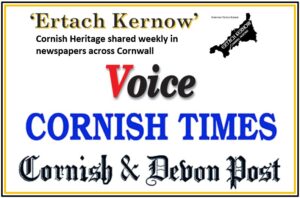
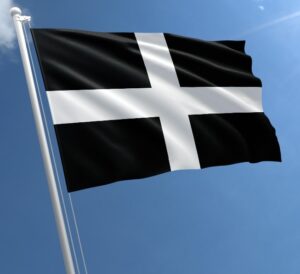

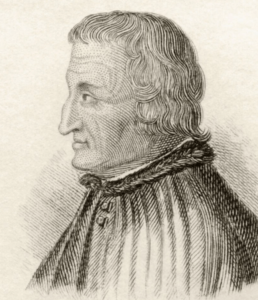
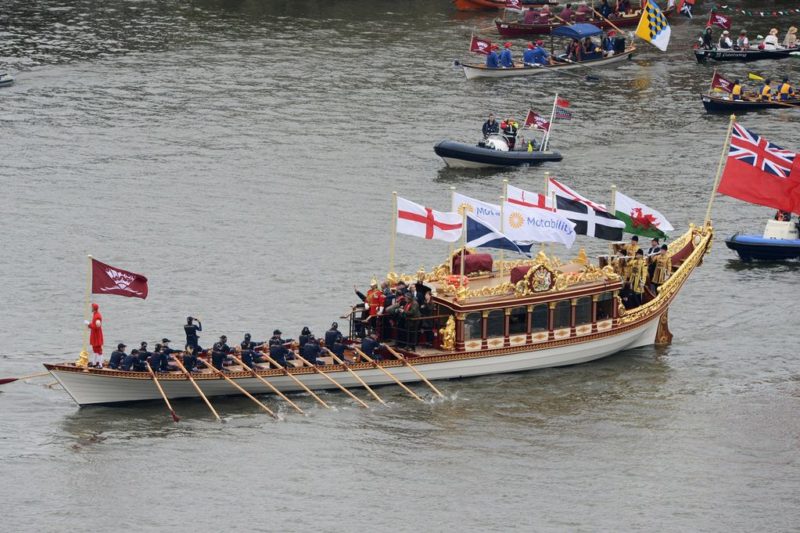
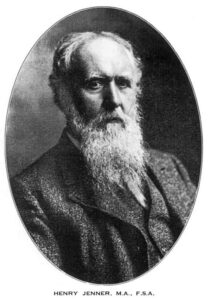
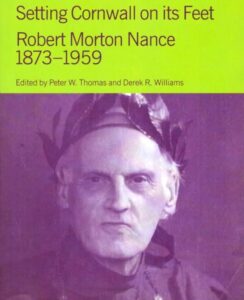
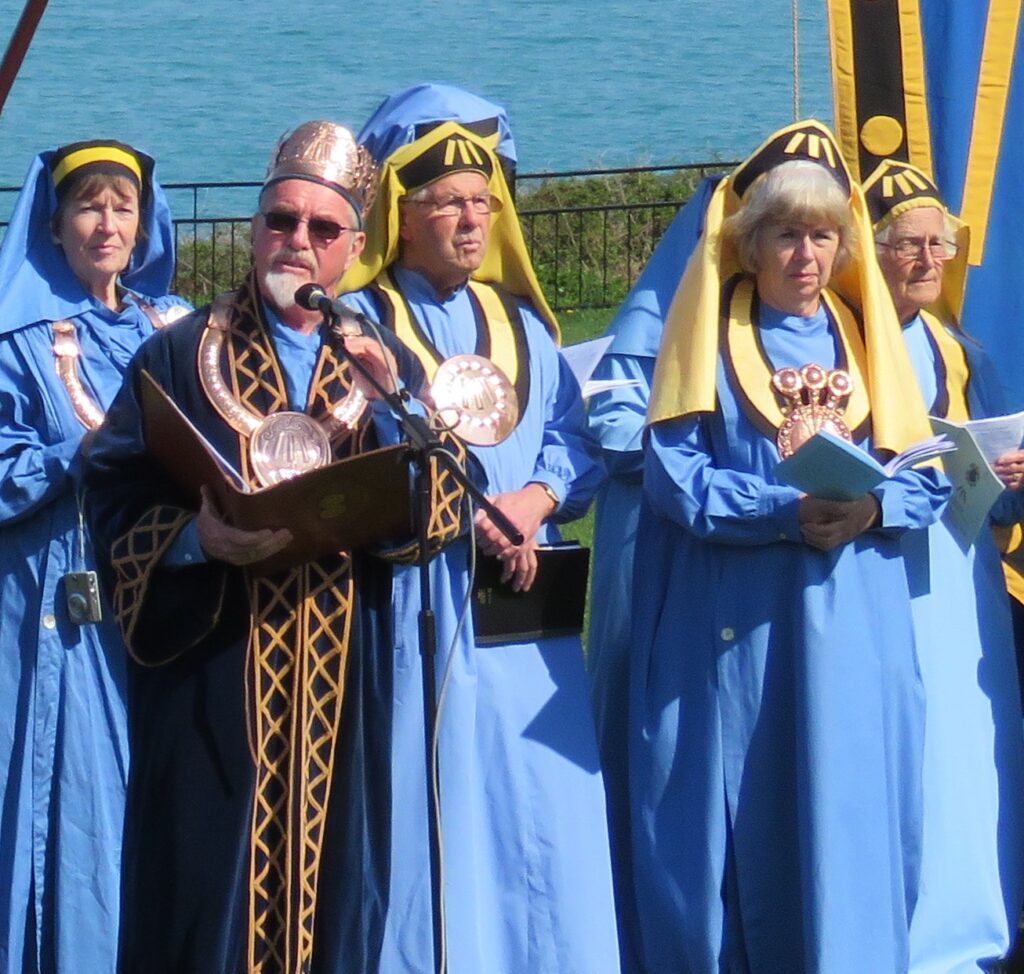


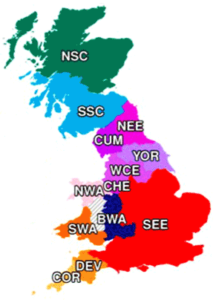
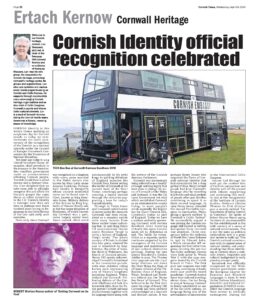
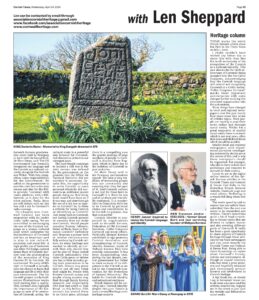
![[200] Ertach Kernow Heritage Column - 24th April 2024 - Commemorating the bi-centennial Ertach Kernow article Ertach Kernow Heritage Column - 24th April 2024 - Commemorating the bi-centennial Ertach Kernow article](https://www.cornwallheritage.com/wp-content/uploads/2024/04/200-Ertach-Kernow-Heritage-Column-24th-April-2024-Commemorating-the-bi-centennial-Ertach-Kernow-article-289x300.jpg)